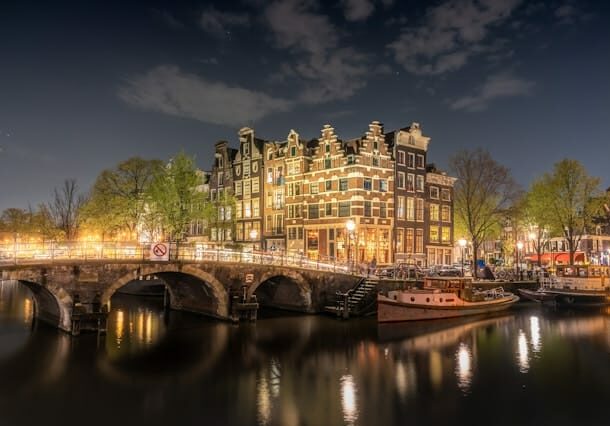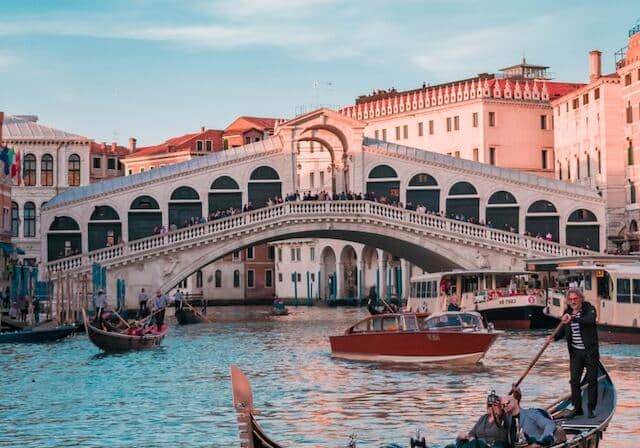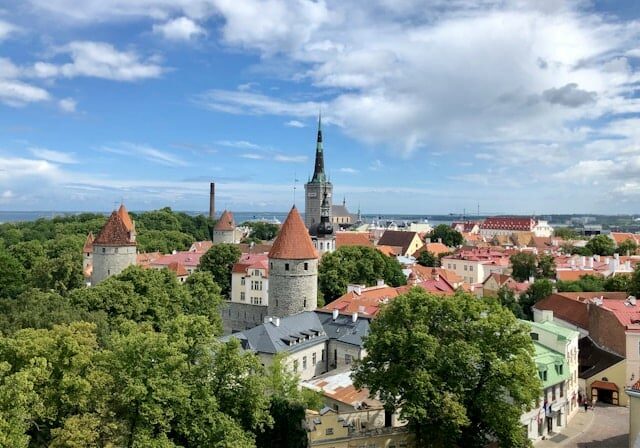When choosing the best EU residences for entrepreneurs, it’s important to compare investment requirements, the ease of conducting business, and the long-term benefits for you and your enterprise.
This comprehensive guide outlines the offerings of each country, making it easier for you to choose by exploring the unique opportunities available across the EU. Discover which programs are in line with your business vision as you plan your path to success in Europe.
The 7 Top EU Residencies for Entrepreneurs
Entrepreneurs play a crucial role in driving economic development, and several EU countries have developed residency schemes to attract and support people who have an innovative business idea.
If you want to access significant R&D funding like Horizon 2020, take advantage of attractive tax incentives, or enjoy the freedom to travel within the Schengen zone, several EU countries offer numerous benefits through their EU residence permits.
Various visas are available, specifically designed to help entrepreneurs establish their presence in the EU market. These visas not only facilitate entry but can also lead to permanent residency and, eventually, EU citizenship.
Portugal

After five years, residents can apply for permanent residency or citizenship, provided they meet certain criteria, such as maintaining the minimum investment of €250,000 and demonstrating basic knowledge of the Portuguese language.
The other option for residency is through Portugal’s D2 visa. Also called the Start-Up Visa or Entrepreneur Visa, there is no minimum investment requirement. However, you must have enough funds to establish and run your own business in the country for at least a year.
The initial D2 Visa is valid for two years and can be extended for another three years. After five years, if you maintain the conditions, you can apply for permanent residency or Portuguese citizenship.
The Netherlands

To qualify, applicants must meet several criteria, including having an innovative product or service, a detailed business plan, and sufficient financial resources to support themselves during their stay.
A crucial component of the application process is partnering with an approved facilitator—an experienced business mentor or organization—who provides guidance and support to the start-up. The facilitator helps ensure the feasibility and potential success of the business idea, adding credibility to the application.
Once the initial one-year period is over, entrepreneurs can apply for a regular self-employment residence permit if their business has made sufficient progress. This follow-up permit allows them to continue developing their company and contributing to the Dutch economy.
The start-up visa program is part of the Netherlands’ broader strategy to foster innovation and entrepreneurship, positioning the country as an attractive destination for international talent.
Spain

The Entrepreneur Visa allows non-EU nationals to reside and establish a business in Spain, provided they have a viable business plan that demonstrates innovation and potential for local economic growth.
Applicants must present a detailed business plan to the Spanish Economic and Commercial Office or the Directorate-General for International Trade and Investments. The plan should outline the project’s economic impact, job creation potential, and innovative aspects.
Additionally, the entrepreneur must have sufficient financial resources to support themselves and their business during the initial phase.
If an applicant’s business plan is approved, they are granted a one-year visa, which can be extended as long as the business remains active and successful. After five years of continuous residency, entrepreneurs can apply for permanent residency.
For those who may not qualify for the Entrepreneur Visa, Spain also offers the Golden Visa program. This program provides residency to non-EU nationals who make significant investments in Spain, including real estate, business projects, or public debt.
For entrepreneurs, investing in a business project that creates jobs or has a significant socio-economic impact can be a pathway to obtaining a Golden Visa, offering residency and the potential for permanent residency after five years.
Ireland

To qualify for STEP, applicants must meet certain criteria. Firstly, they need to have an innovative business proposal that can create jobs and generate revenue.
The start-up must operate in an area of high potential growth, such as technology, life sciences, or financial services. Additionally, entrepreneurs are required to have access to funding of at least €50,000, which can come from their own resources, a business loan, or a venture capital firm.
Successful applicants are initially granted a two-year residence permit, which can be renewed for another three years. After five years of continuous residency, entrepreneurs can apply for long-term residency or citizenship, provided they meet the necessary requirements.
For those who do not qualify under STEP, Ireland offers other pathways to residency, such as the Immigrant Investor Programme (IIP).
While not exclusively for entrepreneurs, the IIP allows individuals to obtain residency by making significant investments in Ireland, including investments in Irish businesses, which can also support entrepreneurial activities indirectly.
Italy

To be eligible for the Italia Startup Visa, applicants must submit a comprehensive business plan detailing an innovative product or service, the potential for growth, and the creation of new jobs.
The business idea should ideally be in fields such as technology, digital economy, or life sciences. Additionally, entrepreneurs need to have secured financial resources of at least €50,000, which can come from personal funds, venture capital, or investment from business incubators.
The application process involves obtaining a certificate of no impediment (nulla osta) from the Italian Ministry of Economic Development. This certificate confirms that the business plan meets the innovative criteria and that the applicant has the necessary financial resources.
Upon approval, the entrepreneur is granted a one-year visa, which can be renewed as long as the business remains active and successful. After five years of continuous residency, entrepreneurs can apply for long-term residency or citizenship.
This program is part of Italy’s broader strategy to promote innovation and entrepreneurship, positioning the country as an appealing destination for international business talent.
Estonia

To be eligible for the Estonian Startup Visa, applicants must have a business model that is innovative and scalable, with the potential for rapid international growth. The application process starts with obtaining a positive evaluation from the Startup Committee, which evaluates the business idea based on its innovation, scalability, and potential impact. Entrepreneurs must also show that they have enough financial resources to support themselves during their stay in Estonia.
Once the evaluation is approved, entrepreneurs can apply for either a short-term visa (up to 90 days) or a long-term temporary residence permit (up to five years).
The long-term permit allows entrepreneurs to live and develop their business in Estonia, with the option to extend their stay or apply for permanent residency if their business is successful.
Estonia’s Startup Visa program is part of the country’s broader strategy to promote innovation and attract global talent, making it an appealing destination for entrepreneurs who want to grow their businesses in a supportive and digitally advanced environment.
Greece

The most common pathway to obtaining a Greek Golden Visa is through purchasing real estate worth at least €250,000. Nevertheless, the program also allows for other types of investments, such as in business projects or through significant capital contributions to Greek companies.
For entrepreneurs, investing in a business that creates jobs or has a substantial economic impact can qualify for the Golden Visa. This makes it a viable option for those looking to establish or expand their business operations in Greece.
The visa allows the holder and their family members to live in Greece and travel freely within the Schengen Zone. After five years of continuous residency, holders can apply for permanent residency and eventually citizenship, provided they meet the necessary requirements.
The Golden Visa program is part of Greece’s broader strategy to attract foreign investment and stimulate economic growth, making it an attractive option for international entrepreneurs.
Creating a Solid Business Plan
In many European Union countries, you must include a solid business plan with your residency or visa application.
For example, this is a crucial step with Portugal’s D2 visa, the Estonian Startup Visa, and Ireland’s STEP visa. In Spain, the country’s Directorate-General for International Trade and Investments must approve your detailed business plan.
You should always check the latest regulations regarding the structure of your application, but in most cases, the business plan must have several elements:
- In addition to the mandatory executive summary and general business description, you must include a market analysis, customer demographics, and a marketing strategy.
- Your Management and Organization information must include key management personnel and their roles, the human resources strategy and the organizational structure.
- Vital to your application is the financial plan for your business. This must demonstrate detailed financial projections, funding requirements, sources of capital, and a break-even analysis.
The relevant authorities might also want to see a risk analysis, mitigation strategies, and contingency plans in addition to the incorporation papers, staff contracts, or other relevant documentation supporting the business plan.
In addition to the business plan and company structure, the financial prerequisites and investment thresholds for a Golden Visa or Entrepreneur Visa in the EU vary depending on the country. While some of them seem a bit steep, it ensures that applicants have the necessary financial resources and commitment to contribute to the host country’s economy.
Global Citizen Solutions is a boutique migration consultancy firm with years of experience delivering bespoke residence and citizenship by investment solutions for international families. With offices worldwide and an experienced, hands-on team, we have helped hundreds of clients worldwide acquire citizenship, residence visas, or homes while diversifying their portfolios with robust investments. We guide you from start to finish, taking you beyond your citizenship or residency by investment application. How Can Global Citizen Solutions Help You?

Frequently Asked Questions About EU Residencies for Entrepreneurs
What is an Entrepreneur Visa?
Designed to attract international entrepreneurs, the Entrepreneur Visa aims to facilitate the establishment and operation of a business by foreign nationals within a host nation, thus aiding in economic enhancement.
What types of businesses are eligible for EU entrepreneur visas?
Eligible businesses often need to be innovative and have high growth potential. Common sectors include technology, life sciences, digital economy, and other high-impact industries. The specific requirements can vary by country, but the general focus is on businesses that can contribute significantly to the local economy, create jobs, and have a scalable business model.
How long does it take to transition from residency to citizenship in the EU?
The process of becoming a citizen in the European Union varies from country to country. The required residency period before obtaining citizenship ranges from five to eleven years. Each nation has specific criteria and procedures for naturalization that applicants must meet.
How do the tax incentives work for entrepreneurs in the EU?
Tax incentives for entrepreneurs vary by country but may include reduced corporate tax rates, R&D tax credits, and grants for innovation and development.
These incentives are designed to lower the initial financial burden on new businesses and encourage investment in innovation. Entrepreneurs should consult with local tax advisors to understand the specific benefits available in their chosen country.
What are the crucial components of a business plan for an Entrepreneur Visa application?
When applying for an Entrepreneur Visa, it’s crucial to submit a business plan that includes the following key elements: a clear business concept, comprehensive market analysis, projected financials, and the anticipated economic impact of the venture.
These components should collectively demonstrate not only the viability of the business but also its potential to create employment opportunities.
Can entrepreneur visas lead to permanent residency or citizenship in the EU?
Many EU countries provide pathways from entrepreneur visas to permanent residency and, eventually, citizenship.
Normally, after holding a temporary entrepreneur visa for a specific period (usually five years) and showcasing the success and contribution of the business to the economy, entrepreneurs can apply for permanent residency. Maintaining residency and integrating into society can subsequently lead to citizenship applications.
What are the general requirements for obtaining an entrepreneur visa in the EU?
To obtain an entrepreneur visa in the EU, applicants typically need to present a detailed business plan that demonstrates innovation, scalability, and potential economic impact.
They must also show evidence of sufficient financial resources to support themselves and their business. Additionally, some countries require the involvement of an approved facilitator or incubator and may have specific criteria regarding job creation and industry focus.
Are there any language requirements for obtaining an entrepreneur visa in the EU?
Language requirements vary by country. Some EU countries may require a basic understanding of the local language or provide language integration courses as part of the visa process. Others, particularly those with strong international business hubs, may offer programs in English. It’s essential for applicants to check the specific language requirements for the country they are interested in.


